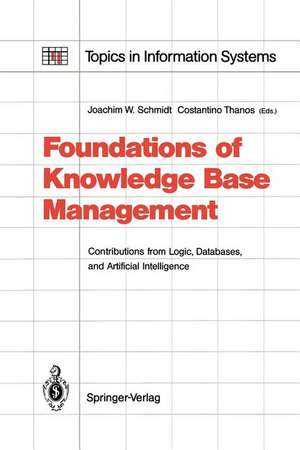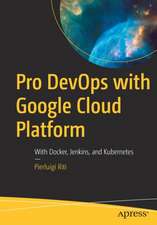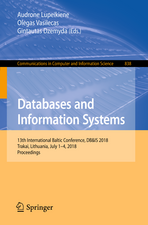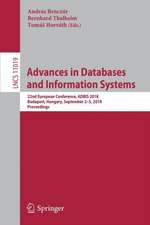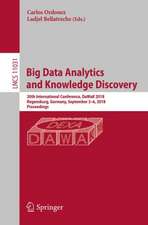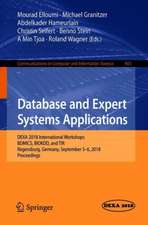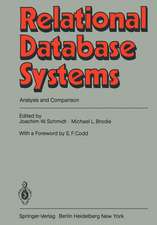Foundations of Knowledge Base Management: Contributions from Logic, Databases, and Artificial Intelligence Applications: Topics in Information Systems
Editat de Joachim W. Schmidt, Costantino Thanosen Limba Engleză Paperback – 16 ian 2012
Preț: 660.33 lei
Preț vechi: 825.42 lei
-20% Nou
Puncte Express: 990
Preț estimativ în valută:
126.39€ • 137.34$ • 106.24£
126.39€ • 137.34$ • 106.24£
Carte tipărită la comandă
Livrare economică 21 aprilie-05 mai
Preluare comenzi: 021 569.72.76
Specificații
ISBN-13: 9783642833991
ISBN-10: 3642833993
Pagini: 596
Ilustrații: XIV, 579 p.
Dimensiuni: 155 x 235 x 31 mm
Greutate: 0.83 kg
Ediția:Softcover reprint of the original 1st ed. 1989
Editura: Springer Berlin, Heidelberg
Colecția Springer
Seria Topics in Information Systems
Locul publicării:Berlin, Heidelberg, Germany
ISBN-10: 3642833993
Pagini: 596
Ilustrații: XIV, 579 p.
Dimensiuni: 155 x 235 x 31 mm
Greutate: 0.83 kg
Ediția:Softcover reprint of the original 1st ed. 1989
Editura: Springer Berlin, Heidelberg
Colecția Springer
Seria Topics in Information Systems
Locul publicării:Berlin, Heidelberg, Germany
Public țintă
ResearchCuprins
Series Description.- Preface.- I. Logic and Knowledge Representation.- 1. The Role of Logic for Data and Knowledge Bases: A Brief Survey.- 2. A Logic-Based Calculus of Events.- 3. Metalanguage and Databases.- 4. Efficient Representation of Incomplete Information About Structured Objects.- 5. Abstraction and Inference Mechanisms for Knowledge Representation.- II. From Data to Facts and Rules.- 6. How To Look at Deductive Databases.- 7. Extending a Relational DBMS Towards a Rule-Based System: An Approach Using Predicate Transition Nets.- 8. Integrated Fact and Rule Management Based on Relational Technology.- 9. Adding a Closure Operator to the Extended Relational Algebra: A Further Step Towards the Integration of Database Techniques and Logic Programming.- III. Architectural Issues in Data and Knowledge Base Integration.- 10. Database Management: A Survey.- 11. Towards Databases for Knowledge Representation.- 12. Large-Scale Knowledge Systems.- 13. Issues in Data Base and Knowledge Base Integration.- 14. Design of a Compiler for a Semantic Data Model.- 15. Two-Mode Evaluation for Dealing with Implicit Interactions Between Logic Programs and Relational Data Bases.- 16. Knowledge Base Management Systems: A Database View.- IV. Knowledge Base Management for AI Applications.- 17. KBMS Requirements of Knowledge-Based Systems.- 18. Conceptual Languages: A Comparison of ADAPLEX, Galileo, and Taxis.- 19. The Software Development Environment as a Knowledge Base Management System.- 20. Retrieving Events from Geometrical Descriptions of Time-Varying Scenes.- 21. A Deductive Solution for Plan Generation.- V. Concluding Remarks.- 22. The Limitations of Logic and Its Role in Artificial Intelligence.- 23. The Need for a Knowledge Representation Framework.- 24. DB Ideas for KBMS.- 25. OnApplication-Oriented and Tool-Oriented Theories.- Final Discussion.- References.- Contributors.
